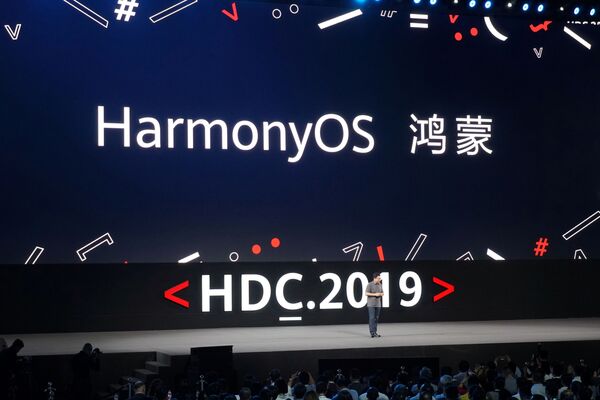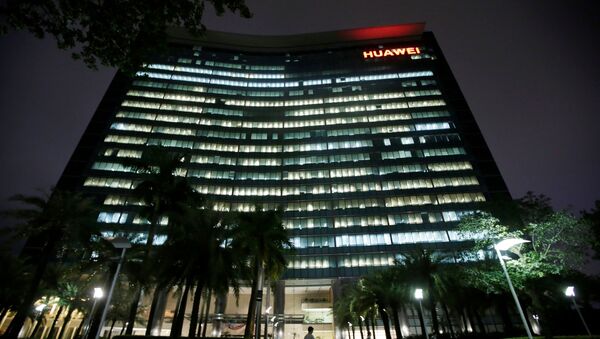At the same time, Trump did not rule out that there could be progress if the United States and China reach a trade agreement.
Trump made his statement just before he signed the National Defence Authorisation Act (NDAA-2019) into law. According to the bill, federal structures and their contractors are prohibited from purchasing equipment from Huawei and several other Chinese companies because of national security concerns.
Also, on 16 May, the US Commerce Department placed Huawei and 70 of its affiliates on its trade blacklist, meaning that US companies are prohibited from supplying hardware and software to firms on the blacklist without a special license from the US government. The Department has given American companies a three month grace period to bring their business in line with the new rules. Thus on 16 August, according to the law, components supply for Huawei should stop.
During a meeting between the US and Chinese leaders in Osaka at the G20 Summit in June, the parties agreed that China would purchase large volumes of US agricultural products, and the United States, in return, would provide its companies with licenses to supply Huawei with components that do not pose a threat to US national security.
However, after another round of trade negotiations in Shanghai, Trump unexpectedly announced the introduction of a new 10% tariff on Chinese goods worth $300 billion starting 1 September. After another round of escalation, China refused to buy American agricultural products, and Trump, judging by his statement, will no longer be in a hurry to make concessions for Huawei.
For the Chinese company, the ban on components supply from the United States, of course, is unpleasant. Last year Huawei spent $11 billion buying elements from Qualcomm, Intel, and Micron Technology. However, Huawei did foresee this negative scenario, so the company has actively overstocked its warehouses. At the moment, Huawei has a year's worth of foreign components.
Nevertheless, software supply is an entirely different story. Huawei smartphones run on Android OS. After the company was blacklisted, Google announced that Google products, such as Google Play, Youtube, Gmail, would not be available on new Huawei devices. Android OS as an open-source system, of course, will work. However, system updates for Huawei devices will also become unavailable.

Huawei, in response to this, said that it has been developing its own OS for several years. And last week the company unveiled it. Harmony OS is compatible with a variety of devices - from smartphones to smart speakers and sensors. Initially, it will mainly be used across a broad range of "smart devices" integrated into the Internet of things (IoT). The first product powered by the new OS is the Honor smart TV.
However, Huawei's new OS will not immediately be able to replace Android or iOS. There will be a long development process. Nevertheless, the fact that the Chinese tech giant has created its own OS is extremely important for the company, LI Kai, an expert from the Shanxi University of Finance and Economics noted.
"I believe that the process of developing an operating system should be gradual. Android entered the market a relatively long time ago, which is why the ecosystem of applications running on Android is already quite developed. And of course, the Huawei operating system does not pose any threat to Android. Even if the United States uses Android as a punishment for Huawei, its own OS will still develop", the Scholar explained.
So creating Harmony is a "crucial step", LI Kai said.
"Since Harmony is an open-source system, it will allow third-party developers to customize their applications for it. That is, it will create its own ecosystem. The Chinese market is extensive, so many foreign companies can join in adapting their applications. Therefore, when the need arises to switch from Android to Harmony, users will be able to do this easily at one point, but only if an ecosystem is established. And it takes time. So, I think, creating your own OS is of strategic importance".
The success of Harmony as a smartphone OS will depend on whether Huawei can build an ecosystem of OS-compatible applications, services, and products. The experience of other companies shows that breaking the duopoly of Android and iOS is not easy. And Microsoft, with its Windows Mobile and Samsung with Tizen OS, were not able to take up any significant market share.
At the same time, those who came to the market much later can become leaders. Actually, Windows Mobile and Symbian OS from Nokia appeared before Android. However, the latter, thanks to the open-source code, began to be used by manufacturers of low-cost smartphones and various startups that were developing applications. As a result, an ecosystem developed that provides users with the convenience of working with Android.
In this sense, Huawei also has an important advantage. The company has a leading position in the development of 5G technology and has the largest number of patents in this field. 5G technology should become the engine for the development of the Internet of things and smart devices. Therefore, the fact that Harmony OS is "tailored" for smart devices and 5G will allow the company to integrate its software into an increasing number of gadgets will help create the necessary ecosystem. Harmony's open-source code should also make life easier for third-party developers.
The views expressed in this article are solely those of the speaker and do not necessarily reflect the official position of Sputnik.



